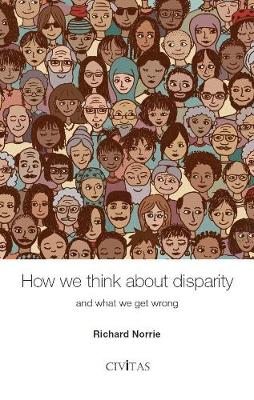A government-appointed Commission on Race and Ethnic Disparities has been set up to address
disparity between ethnic or racial groups in outcomes relating to health, education, employment and
other areas. This follows numerous reviews conducted by various governments since 2010.
Drawing on the full array of existing reviews, this report by the Director of the Statistics and Policy
Research Programme at Civitas, Richard Norrie, examines the intent behind them, the empirical
base, the inferences that are drawn and the thinking behind the recommendations made.
It is argued that while we are adept at identifying disparity in statistics, we struggle to say why it
exists or to provide a moral theory as to why it might be wrong. It is easy to say why discrimination
based on ethnicity or race is wrong, since it violates liberal principles of equality before the state and
of judging people on individual merit, not immutable characteristics over which they have no control.
Disparity is more difficult: there can be innocent reasons why groups may have different outcomes,
such as differences in age, or geographic region.
The author finds that a decade of various reviews never go so far as to say disparity and
discrimination are the same thing, only that they tacitly allow the moral critique reserved for the
latter to flow over onto the former. This begins to provide a moral basis for government intervention,
as well as a sense of purpose and virtue for politicians. All of this has hinged upon statistics - but
those very statistics are flawed in terms of missing data, confounding variables, and the problem of
inferring causation from correlation.
Richard Norrie argues that the Government's existing Race Disparity Unit might better serve the
country by looking to evidence and measure discrimination rather than disparity over time. While
disparity is ambiguous, discrimination can be evidenced. Doing so would provide a better rationale
for government intervention and engender greater trust. While disparity is inevitable since groups
differ in many ways, it is concluded that does not mean we cannot strive for better. Better solutions
and improvements can be found - but targeting groups rather than individuals might be inefficient as
well as foster a culture of resentment.
- ISBN13 9781912581207
- Publish Date 11 December 2020
- Publish Status Active
- Publish Country GB
- Imprint Civitas
- Format Paperback
- Pages 148
- Language English
